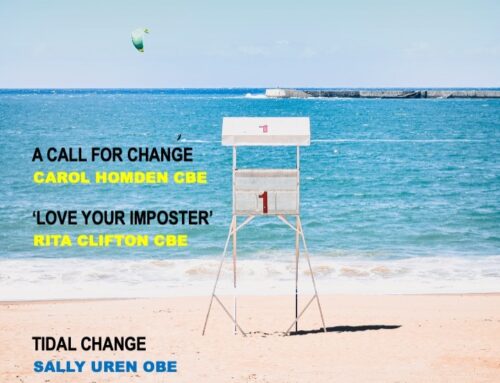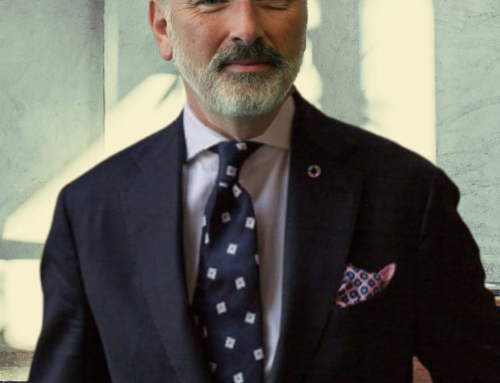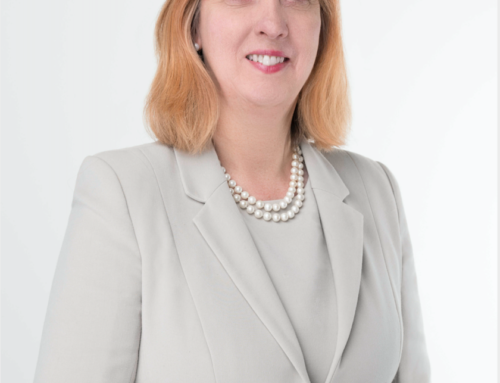Making the Invisible Visible
Spotlighting the experience of advanced breast cancer

Breast cancer is brutal, indiscriminatory and sadly kills more women in Europe than any other form of malignancy. The majority of these early deaths are the result of metastatic disease, where cancer has spread to a point making surgical intervention virtually impossible. But amid the steep challenges, there is hope and forward progression. Global policy is shifting in the direction of better management for people living with advanced forms of cancer. Emerging pharmacological therapies are helping extend life, and giving the crucial gift of time – time to live, be productive and active.
Very much in the spirit of celebrating that time and its importance, I’ve been hugely proud to see my agency team partner with Novartis over the past year to support the voices of women living with advanced breast cancer, via a unique programme of activity designed to help the world listen to the lived experience of the condition. Titled The Invisible Woman, it’s a multi-channel initiative under the banner of a wider Novartis social impact campaign called My Time Our Time, the goal of which is to bring the views, opinions and passions of women to the forefront of the international medical discourse, and shift entrenched beliefs that advanced breast cancer is a no-hope situation for all.
Because advanced breast cancer means the malignancy has spread outside the breast, it’s harder to treat than earlier stage disease. In metastatic disease, the cancer has spread to distant organs of the body and this cannot be reversed or cured. So, the goals of treatment shift, becoming more about controlling the growth of the disease, relieving symptoms, prolonging life, and improving the quality of that life where possible. The average survival for individuals is estimated to be about two to three years, but this varies significantly dependent on where the cancer has spread to and how the individual has responded to treatment. Some people live for years, and others survive for just a few months. Although advances in both early detection and treatment have seen death rates from breast cancer decreasing steadily in most Western countries since the early 1990s, progress has been slow in terms of improved outcomes for patients with advanced disease.
The Invisible Woman took shape on several fronts. A digital, live exhibit toured medical congresses across continents, inviting healthcare professionals into the thoughts, views and beliefs of women living daily with the condition – only by reading, listening, and experiencing the points of view did the image of the woman speaking reveal itself.
In parallel, views and thinking were sought from women in multiple countries to form a centrepiece report laying bare the realities of advanced breast cancer and the impact in so many areas of life. This countered conventional notions that living with a progressive disease was somehow all about the disease only, and the therapeutic strategy to combat it. The report revealed to the world that:
- Advanced breast cancer had a marked impact on personal finance – the practical and emotional consequences of financial stress had a huge bearing on the day to day experience of life for many women.
- A lack of provision of information and financial support for women persists, and physicians remain the chief point of contact for a wide range of challenges and issues. This forms a central policy ‘ask’ of The Invisible Woman programme – a need to think holistically about the impact of advanced cancer in every part of life.
- Many women feel isolated and helpless – often withdrawing from society completely. This means day to day living becomes a struggle, giving way to acute anxiety, depression and loss of personal confidence.
The personal fiscal impact of cancer should never be overlooked, and this is a core theme of the programme. Many women want to – or have to – maintain a working life and career at the same time as looking after children or grandchildren. Sometimes advanced breast cancer affects women in the prime of their life when having a job is vital to the family finances. However, a diagnosis has a devastating impact on a woman’s career, with significant loss of income due to having to work fewer hours or needing to stop paid work.
Additionally, all cancer survivors have a significantly increased risk of unemployment and are less likely to be re-employed than those without cancer. The report showed that 60 per cent of women have seen their household income drop as a result of their illness. Over half have seen their household income drop by more than 30 per cent, half of whom have had an income drop of over 50 per cent.
Working on a programme like The Invisible Woman is a reminder to me of the power for good that the medical and healthcare industry can truly be. By allocating resources to initiatives which educate, inform and support understanding of the wider issues and challenges people face, they fulfil a far more holistic role in cancer than just innovating new therapies and bringing them to the world.
The real ‘win’ of course will be to see continued policy shifts in countries around the world that consider the individual, personal and social needs of those living with advanced breast cancer, and not just the challenging of fighting the malignancy at a biological level. As technology increasingly affords many women more time, it becomes a precious commodity for them as well as their family and friends. And it’s a privilege to be leading communication efforts around it.
Con Franklin
Managing Director, Ketchum Health
Twitter: @confranklin


Making the Invisible Visible
Spotlighting the experience of advanced breast cancer

Breast cancer is brutal, indiscriminatory and sadly kills more women in Europe than any other form of malignancy. The majority of these early deaths are the result of metastatic disease, where cancer has spread to a point making surgical intervention virtually impossible. But amid the steep challenges, there is hope and forward progression. Global policy is shifting in the direction of better management for people living with advanced forms of cancer. Emerging pharmacological therapies are helping extend life, and giving the crucial gift of time – time to live, be productive and active.
Very much in the spirit of celebrating that time and its importance, I’ve been hugely proud to see my agency team partner with Novartis over the past year to support the voices of women living with advanced breast cancer, via a unique programme of activity designed to help the world listen to the lived experience of the condition. Titled The Invisible Woman, it’s a multi-channel initiative under the banner of a wider Novartis social impact campaign called My Time Our Time, the goal of which is to bring the views, opinions and passions of women to the forefront of the international medical discourse, and shift entrenched beliefs that advanced breast cancer is a no-hope situation for all.
Because advanced breast cancer means the malignancy has spread outside the breast, it’s harder to treat than earlier stage disease. In metastatic disease, the cancer has spread to distant organs of the body and this cannot be reversed or cured. So, the goals of treatment shift, becoming more about controlling the growth of the disease, relieving symptoms, prolonging life, and improving the quality of that life where possible. The average survival for individuals is estimated to be about two to three years, but this varies significantly dependent on where the cancer has spread to and how the individual has responded to treatment. Some people live for years, and others survive for just a few months. Although advances in both early detection and treatment have seen death rates from breast cancer decreasing steadily in most Western countries since the early 1990s, progress has been slow in terms of improved outcomes for patients with advanced disease.
The Invisible Woman took shape on several fronts. A digital, live exhibit toured medical congresses across continents, inviting healthcare professionals into the thoughts, views and beliefs of women living daily with the condition – only by reading, listening, and experiencing the points of view did the image of the woman speaking reveal itself.
In parallel, views and thinking were sought from women in multiple countries to form a centrepiece report laying bare the realities of advanced breast cancer and the impact in so many areas of life. This countered conventional notions that living with a progressive disease was somehow all about the disease only, and the therapeutic strategy to combat it. The report revealed to the world that:
- Advanced breast cancer had a marked impact on personal finance – the practical and emotional consequences of financial stress had a huge bearing on the day to day experience of life for many women.
- A lack of provision of information and financial support for women persists, and physicians remain the chief point of contact for a wide range of challenges and issues. This forms a central policy ‘ask’ of The Invisible Woman programme – a need to think holistically about the impact of advanced cancer in every part of life.
- Many women feel isolated and helpless – often withdrawing from society completely. This means day to day living becomes a struggle, giving way to acute anxiety, depression and loss of personal confidence.
The personal fiscal impact of cancer should never be overlooked, and this is a core theme of the programme. Many women want to – or have to – maintain a working life and career at the same time as looking after children or grandchildren. Sometimes advanced breast cancer affects women in the prime of their life when having a job is vital to the family finances. However, a diagnosis has a devastating impact on a woman’s career, with significant loss of income due to having to work fewer hours or needing to stop paid work.
Additionally, all cancer survivors have a significantly increased risk of unemployment and are less likely to be re-employed than those without cancer. The report showed that 60 per cent of women have seen their household income drop as a result of their illness. Over half have seen their household income drop by more than 30 per cent, half of whom have had an income drop of over 50 per cent.
Working on a programme like The Invisible Woman is a reminder to me of the power for good that the medical and healthcare industry can truly be. By allocating resources to initiatives which educate, inform and support understanding of the wider issues and challenges people face, they fulfil a far more holistic role in cancer than just innovating new therapies and bringing them to the world.
The real ‘win’ of course will be to see continued policy shifts in countries around the world that consider the individual, personal and social needs of those living with advanced breast cancer, and not just the challenging of fighting the malignancy at a biological level. As technology increasingly affords many women more time, it becomes a precious commodity for them as well as their family and friends. And it’s a privilege to be leading communication efforts around it.
Con Franklin
Managing Director, Ketchum Health
Twitter: @confranklin





